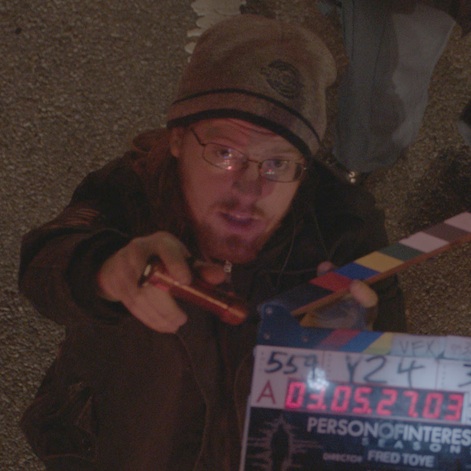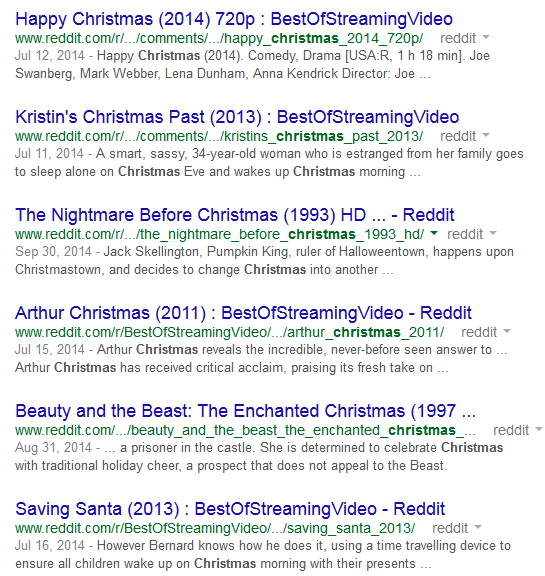A few weeks ago we published an interview with Hollywood director Lexi Alexander in which she explained her support for file-sharers.
This resulted in a lively discussion on Twitter and other media, so we decided to explore the topic a little further. Instead of letting movie industry bosses speak, we solicited the thoughts of various filmmakers.
There are just as many opinions as there are people working in the film business and we aimed to cover a broad spectrum. Our main goal is to show that the piracy issue isn’t as black and while as it’s sometimes portrayed.
The real challenge, perhaps, is to let people have their say without condemning their views. While this won’t solve the issue it’s a good way to move forward. That’s true for both “sides” of the debate.
Below are the four filmmakers who were kind enough to participate and answer five questions about piracy, how it affects the movie industry, and what can be done in response.
 Joshua Caldwell (@Joshua_Caldwell) won an MTV Movie Award for Best Film in 2006. Recent films he produced, wrote and directed are Layover (2014), Resignation (2014) and Assassin (2015).
Joshua Caldwell (@Joshua_Caldwell) won an MTV Movie Award for Best Film in 2006. Recent films he produced, wrote and directed are Layover (2014), Resignation (2014) and Assassin (2015).
 Kevin Koehler: (@kevrockcity) is a screenwriter whose work has been featured on the Hollywood blacklist. He worked with several well-known filmmakers including Wim Wenders and Gregg Araki.
Kevin Koehler: (@kevrockcity) is a screenwriter whose work has been featured on the Hollywood blacklist. He worked with several well-known filmmakers including Wim Wenders and Gregg Araki.
 Brent Weichsel (@bsweichsel) is a Local 600 camera assistant. He worked on several popular movies and TV-shows including Person Of Interest and White Collar.
Brent Weichsel (@bsweichsel) is a Local 600 camera assistant. He worked on several popular movies and TV-shows including Person Of Interest and White Collar.
 John Kent (@JohnDoctorKent) works as a producer at Potent Media. He is known for his work on the films Booley (2010), Deer Crossing (2012) and Apocalypse Kiss (2014).
John Kent (@JohnDoctorKent) works as a producer at Potent Media. He is known for his work on the films Booley (2010), Deer Crossing (2012) and Apocalypse Kiss (2014).
Do you think piracy equals theft?
Joshua Caldwell: No. I believe the Supreme Court has been very clear on the issue of whether file-sharing constitutes ‘theft’ or ‘copyright infringement.’ I harp on this because it seems to be the core argument from a lot of people. “It’s stealing. They’re thieves.” Even when presented with this ruling they say, “Well, I don’t believe that.” Okay, well the court system you’re supposedly relying on to “enact justice” on file-sharers does, so now what?
It’s an important distinction for me and how I think about this issue because of how it frames file-sharers. It’s a psychological thing. Thinking of someone as a thief is very different than thinking of them as an infringer. It’s much easier to think of a ‘thief’ as being an inherently bad person who must be punished by the law. Not to say that those who infringe upon copyright aren’t subject to consequences, but as a creator, I think of them as audience that we just haven’t been able to capture yet. So, I start from a place of “Why?” and ask questions in search of solutions rather than “sue them all and put them in jail.”
Kevin Koehler: No, they are not equivalent. Piracy is copyright infringement. I know this is a boring, pedantic answer. Sorry. However, while it is not theft, it is taking compensation from the folks that make the content and shifting it to the folks that distribute the content – not just piracy sites, but also legal streaming sites (Netflix, Spotify, iTunes, et cetera) who can leverage the threat of piracy into more favorable deals.
Brent Weichsel: Piracy in and of itself is not theft. It’s also not a loss. Studies have shown that people who pirate often spend far more money on media than those that do not. Now if you make money because of your piracy well that’s a gray area where I do not know what to think.
John Kent: Piracy of media is theft, in the legal sense of the word, but I do not think it is always “illegal”. Films and television shows are created for corporations and investors to realize a financial return, or for artistic purposes. The financial return cannot be realized if the media is experienced without viewers paying for it.
Without a financial return, no further media can be made. So everything can’t be free. However, there are thousands of hours of media which would be lost without YouTube, from old television shows their corporate masters no longer wish to exploit to a commercial fondly remembered from childhood. Should the films which were owned by Vestron Video in the 80s be lost forever because they are now a line item on the sheet of a corporation which put them out of business?
My personal stance and practice is that if a film or television show is available from the legal owner for a fee, it should be paid for.
How do you think piracy is affecting the movie industry?
Joshua Caldwell: It’s affecting it without a doubt. Whether it’s doing so to such a degree that it’s having an overall impact? I don’t think we know for sure yet. For one, the jury’s still out on whether it has a negative or positive impact. On a film-by-film basis, it’s easy to suggest that it might have a negative impact, but for the industry as a whole? It’s hard to make that case when the films that make the most money at the box office are also the most pirated. No one complains about piracy when the movie does well, but when a movie tanks and it was leaked online, it becomes an easy place to point fingers. And yes, I’m sure it has some impact; but at the same time, maybe the film just wasn’t very good.
I can’t say for sure, but I wouldn’t be surprised if the audiences that most studios rely on for box office aren’t file-sharers. I mean, /Film recently posted about how 70% of moviegoers don’t plan on a specific movie when going to the movie theater. It’s really, really difficult to equate a free download to a lost sale. There are just too many other factors. But piracy is an easy target for blame specifically because no one really knows.
On the flipside, if piracy is as harmful financially and as widespread as is being argued, I can’t figure out why you would want to alienate such a large audience further than you already have.
Kevin Koehler: Well, it has certainly helped obliterate the movie industry’s former business model, which was based around theatrical distribution (followed by timed DVD and television broadcast releases). This is no longer a workable model, so the industry is in search of a new one. For some releases – large studio tentpoles, franchised, with branded tie-ins, often in 3-D – they’ve found a successful model. For other kinds of films, they’re still looking, which is why the studios have stopped making certain genres altogether. Piracy isn’t the only reason, obviously, but it’s a contributing factor.
Brent Weichsel: It’s become a scapegoat. People blame dwindling sales on it. The studios use it as an excuse to pay the crew and talent less. Producers use it in negotiations to have shittier contracts with the unions. Has it had a truly negative impact that doesn’t have to do with its perception? Probably not much. Not any more than the folks selling dvds or VHS on Canal Street.
John Kent: Piracy has an effect on the film industry in different ways, depending on the genesis of the film. Downloading “The Avengers” probably doesn’t hurt the movie – it made a billion dollars in the theaters, and millions more through the secondary revenue streams. The people who worked on the film were paid for their work.
Piracy might kill off some sequels – the revenue that would have made the studio heads greenlight part two was lost in no-pay downloads. But what I can tell you for sure is that piracy hurts the independent filmmaker financially. I produced a direct-to-DVD movie called DEER CROSSING – a horror film, no artistic masterpiece, but something people might want to kill an evening watching.
During the first week of DVD release, on one popular torrent site only, there were over 30,000 downloads of the film. How many of these downloads could have been paid rentals or DVD purchases? When you add this to the deals that distributors offer for independent films, there is no way to make back the money the investors put in – and forget about a profit or paying off deferred deals.
(continue reading on page 2)
Source: TorrentFreak, for the latest info on copyright, file-sharing and anonymous VPN services.

 Despite being one of the most pirated software vendors in the world, Microsoft doesn’t have a long track record of cracking down on individual pirates.
Despite being one of the most pirated software vendors in the world, Microsoft doesn’t have a long track record of cracking down on individual pirates.







